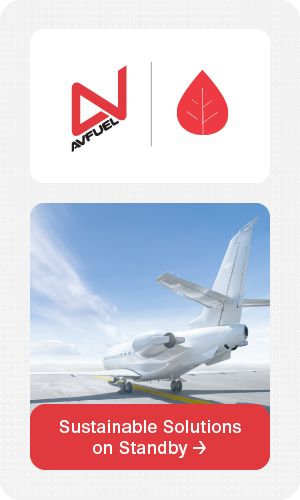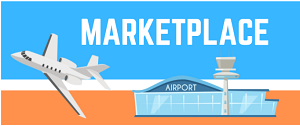NATA member Atlantic Aviation is leading the way on Diversity, Equity & Inclusion (DE&I) practices, as one of the pillars of its commitment to Environmental, Social, and Governance (ESG) best practices. Among the six top current ESG initiatives identified by CEO Lou Pepper and his team at Atlantic: “Invest in a sustainable DE&I program and foster a culture of belonging across the organization.”
Aviation Business Journal caught up with Paula Sacks, Atlantic Aviation’s Chief Human Resources Officer and Co-Chair of Diversity & Inclusion, and Ivy Cueto, Atlantic’s Marketing Manager, to learn more about the principles behind those acronyms and what they look like in practice at the world’s second largest FBO chain.
ABJ: With aviation businesses facing pervasive workforce shortages, how can NATA members recruit diverse talent and help new entrants achieve long-term, rewarding careers in the aviation industry?
Ivy Cueto: I can’t disagree that labor shortages have affected us, just like all the other companies throughout the last few years. But I would say that if we’re not accounting for the opportunities that we have as a company to really open our doors, focus on DE&I, and welcome in all qualified candidates, we’re missing out on recruiting good employees. If you’re looking for an exact skill rather than looking at the person as a whole—the soft skills they bring, their natural personality, and what they can add to the overall culture of the company—you’re not doing anything to help your own labor issues. It seems straightforward to me: companies that are actively working to become more diverse and inclusive are going to gain better ground in these tough times.
Paula Sacks: How do we attract more people and a more diverse workforce to our industry? I try to focus on the great career opportunities for those who love being part of aviation to grow with a company like Atlantic, where there is much potential for upward mobility. You have the opportunity to learn the operations, advance in your field, and build a long-term career, whether it’s on the customer service side or the line service operation side. Companies like Atlantic offer opportunities to continue to grow, to move to different locations, and to advance into leadership roles.
ABJ: Say more about that career trajectory potential.
Paula Sacks: One of the things that we are so proud of at Atlantic is that people come into entry level positions like line service right out of high school or college and then move into supervisory or manager roles. People who start in line service roles can eventually move into operations manager or general manager roles. After they learn the components of the job: how to greet the customers, marshal and fuel the planes, and eventually tow the planes—which is part of a certification process—there are continuous opportunities to develop that skill set, to progress over time, and to make a career here at Atlantic Aviation. We are proud of our numerous success stories. Just last year, we moved 50 people from one location to another for advancement opportunities. We have promotions that happen within locations and, quite frequently, for those willing to relocate from one FBO to another to take on a promotion opportunity.
ABJ: When did Atlantic begin consciously working on Diversity, Equity & Inclusion initiatives?
Paula Sacks: When I met with our CEO Lou Pepper to interview for my current role, the very first thing he mentioned was the fact that Atlantic Aviation valued diversity and inclusion—before he even knew of the acronym DE&I. For Lou, and for Atlantic Aviation, it’s about leveraging the backgrounds, experiences, similarities, and differences of each team member in the best way to support customers and operations. And giving team members opportunities to grow their career here.
ABJ: Can you share some stats? How diverse are the employees across the whole company at this stage in your DE&I efforts and as a baseline now that this is a key initiative at Atlantic Aviation?
Paula Sacks: We’re getting ready to publish this in our upcoming sustainability report. For our general workforce across Atlantic’s 100+ FBO locations, 25% is female and 75% male, with 41% racial diversity. In management, 30% of our workforce is female, with 30% racial diversity. So, there are some things that are a source of pride, and others in need of more work. Increasing visible representation, especially at leadership levels, is core to our DE&I efforts.
ABJ: Are there specific Atlantic locations that are much more diverse than those numbers? What do you attribute it to?
Paula Sacks: Our location at Midway Chicago is a good example of the talent mirroring the communities in which they operate, and that’s thanks to the local efforts of the general manager. It takes focus in our hiring efforts, supported by our Human Resources team, but our local managers know the community and the talent within a market and we count on them to help in building teams that mirror the communities in which we operate.
ABJ: Can you talk about some of the specific programs, outreach efforts, and recruiting ideas that have helped you achieve those stats at your other locations as you work towards shifting those numbers across the company?
Paula Sacks: We have just started to formalize so much of the programmatic efforts around DE&I. For the last couple of years, we’ve had a DE&I committee made up of about 25 representatives from across many of our locations, and much of our DE&I efforts were through that committee structure. When I came into Atlantic, Lou and I decided that one of our most important priorities is to better capture all that we’re doing around DE&I, so we now have a more formalized roadmap. One key component is increasing the level of visible representation at Atlantic, which will happen locally across our 100+ FBO locations. It is important that we’re representing the communities where our FBOs are located and that we do a good job of attracting talent in those markets that have diverse representation.
 One of our workforce strategies is developing a partnership with a company called Talentcare to help with our frontline hourly job recruiting. About 85% of our workforce holds hourly positions, mostly line service technicians (LST) and customer service representatives. Talentcare helps us identify sources that not only increase the reach of Atlantic but also target diverse candidates for filling our positions. Although we’re still in the early stages, we’ve already seen strong results in terms of the diverse talent populations that are being presented to us for those roles—much more so than we were able to accomplish with online job postings on our own.
One of our workforce strategies is developing a partnership with a company called Talentcare to help with our frontline hourly job recruiting. About 85% of our workforce holds hourly positions, mostly line service technicians (LST) and customer service representatives. Talentcare helps us identify sources that not only increase the reach of Atlantic but also target diverse candidates for filling our positions. Although we’re still in the early stages, we’ve already seen strong results in terms of the diverse talent populations that are being presented to us for those roles—much more so than we were able to accomplish with online job postings on our own.
ABJ: Are you looking for a lot of experience for those positions or is it mainly finding the right people and knowing that you’re going to train them anyway? A lot of times when we’re talking about Diversity, Equity and Inclusion, what we’re really talking about are barriers to entry.
Paula Sacks: That is exactly it. In fact, we indicate “no experience required” on the job posts for many of our positions. We want people who have a desire to join the industry to know that Atlantic will bring them in and train them from the ground up in customer service, safety, and operations, whether it’s in a line service technician role or customer service representative role at the front desk.
At Atlantic, we train using a mentoring approach. For our customer service roles, for example, we have a customer experience team that does a lot of the training assigned to each region. Their responsibility is helping customer service talent develop locally. We also have specific training modules that help our customer service representatives and our line service technicians learn their role and work through the different certification processes that can help them progress in terms of both pay and responsibility.
ABJ: I think that’s important to emphasize for this discussion that we’re not talking about recruiting a more diverse workforce for minimum wage jobs. These are good jobs with competitive pay that can lead to great careers. Could you briefly talk me through the process to hire a new line service technician with no experience? What does that timeline look like? And the next question is, how long do they typically stay in in that entry level position before moving on to other roles within the company?
Paula Sacks: Let’s say we bring on a person for a line service technician role. The first several weeks are focused on shadowing and learning the different components of the job, with the number one focus being training on the safety expectations and requirements, and then, two, being trained on Atlantic’s customer service excellence requirements. Safety and service are absolutely foundational to every single position within Atlantic, so those get the most attention in terms of training from the very beginning. From there, they begin to learn the standard operating procedures for the role: how to greet, marshal, and fuel the aircraft. They then complete all of the different components of the job specific and task specific safety training in order to begin the certification process. Two examples are how to service potable water of an aircraft and tow spotting aircraft to ensure safety aircraft movement. For those who are skilled, interested, and willing to become tow certified, the process of certification, observation, on-the-job training, and skill assessment starts at around six months. We do pay increases along the way—we call it a progression—after they’ve been here for 90 days and for many after they have progressed through the certification processes.
Within the first 90 days we expect our LSTs to be able to marshal aircraft, drive vehicles and equipment on our ramp, fuel varying types of aircraft—all the basic LST job duties. And then we expect them to be moving on to our tow certification between the six months to a year mark.
ABJ: I understand you’re tracking separate numbers for Diversity, Equity & Inclusion at the management level, too. Can you talk about how you’re helping underrepresented employees grow into those leadership roles?
 Paula Sacks: Mentoring is important for promoting from within the company, engaging those that have been in the job before mentoring those who are earlier in their career. The importance of mentoring for earlier career individuals is a huge cultural component of Atlantic that I believe sets us apart. We have recently developed an Atlantic Aviation Leadership Development Program focused on developing leaders to serve in General Manager (GM) roles, which are the top positions at any one of our FBOs. We are very excited about the program and can’t wait to see the success that it’s going to bring for developing our talent. It is, in many ways, a mini executive role, where General Managers have to know everything from originating business development, to every detail of operations and customer service, to the technical operations, to managing relations with airport authorities. It’s strategic, financial, and commercial. General Managers have a people role, a service role, and you have community and external relations role, a financial role and an operations role… all of these skills are necessary for a General Manager. This is what our Leadership Development Program is designed for: to develop not only the technical components of the skills, but also the leadership skills and competencies that will help grow General Manager talent over time from within Atlantic. We’ve just launched the program in the last year, and we have a cohort of 13 individuals that are currently part of the program, working on development that will position them to take on GM roles. As we make progress with this group of talent, we will expand it into operations or customer service talent development as well.
Paula Sacks: Mentoring is important for promoting from within the company, engaging those that have been in the job before mentoring those who are earlier in their career. The importance of mentoring for earlier career individuals is a huge cultural component of Atlantic that I believe sets us apart. We have recently developed an Atlantic Aviation Leadership Development Program focused on developing leaders to serve in General Manager (GM) roles, which are the top positions at any one of our FBOs. We are very excited about the program and can’t wait to see the success that it’s going to bring for developing our talent. It is, in many ways, a mini executive role, where General Managers have to know everything from originating business development, to every detail of operations and customer service, to the technical operations, to managing relations with airport authorities. It’s strategic, financial, and commercial. General Managers have a people role, a service role, and you have community and external relations role, a financial role and an operations role… all of these skills are necessary for a General Manager. This is what our Leadership Development Program is designed for: to develop not only the technical components of the skills, but also the leadership skills and competencies that will help grow General Manager talent over time from within Atlantic. We’ve just launched the program in the last year, and we have a cohort of 13 individuals that are currently part of the program, working on development that will position them to take on GM roles. As we make progress with this group of talent, we will expand it into operations or customer service talent development as well.
ABJ: On the website and elsewhere, Atlantic has its DE&I initiative posted as, “Invest in a sustainable DE&I program and foster a culture of belonging across the organization.” Can you say more about the second part of that priority? How do you foster that culture?
Paula Sacks: Right now, for the first time company-wide, we are performing an employee engagement survey. It may sound so typical to organizations that have had engagement surveys for a long time, but we never had one broadly across all of Atlantic that was holistically focused on how employees feel about their work, their environment, their management, their sense of belonging, their feeling of inclusion, their growth opportunities, and what they recommend for us to better build this inclusive workforce. Everything that will come out of that survey will be focused on helping our workforce going forward and will inform many of our future directives and initiatives.
Another way is thinking about investments in our employee benefits and ensuring that we’re offering benefits that will attract and retain talent for both our current needs and for what we want and need in the future. We have recently added six weeks parental leave for either a mother or a father for the birth of a newborn child. We just added tuition reimbursement to encourage continuing education within our workforce. Those are two examples of actions from the last couple of months that really show the investments we’re making.
ABJ: In some parts of the country, even just the words Diversity, Equity & Inclusion can be a bit of political football. Have you met any kind of resistance to these initiatives?
Paula Sacks: I think that DE&I requires both top-down and bottom-up activity and action. The top-down is driving the strategic direction for how we’re going to position Diversity, Equity & Inclusion as both a strategic differentiator and enabler for Atlantic. The bottom-up is that we have to hear directly from employees, consider current events, and what’s happening within communities—all of which are critical to setting the direction that we need to go. It’s why the engagement survey is so important for management to receive feedback about employees’ local experiences and feelings on different social issues. All of those are inputs into what will ultimately influence our actions.
ABJ: I think it’s interesting that Atlantic’s DE&I initiative is under the umbrella of sustainability and this larger effort towards evolving in terms of Environmental, Social, and Governance (ESG). Can you speak to that?
Paula Sacks: Absolutely. We are taking a holistic point of view of all the things around sustainability in terms of ESG, so our ESG ambition includes everything from energy and environmental and client to all of the components of the social and governance around DE&I and belonging. Continuing to build and foster the culture to formalize career development and focus on both employee and community engagement contributes a lot to the social initiatives that make sure we’re giving back in the communities where we serve.
Our motto at Atlantic Aviation is “Local everywhere,” because we realize how important it is to have a local approach depending on the FBO location. We want to do local community giving, local empowerment of teams, and local engagement within communities. And our number one laser-focus for Atlantic is safety—of our people, of our operations, and of the aircraft that our customers have entrusted us with. So we keep health and safety as a core element of our ESG ambition as well, in terms of ethics, compliance, minimizing risk, etc. That’s the holistic kind of approach that we are taking for linking DE&I and sustainability and all things ESG together.
ABJ: Are there other NATA members or other companies outside of the aviation industry that you’ve looked to as models for what you’re trying to achieve on those fronts?
Paula Sacks: We absolutely love to learn from the great things that others are doing both inside and outside of our industry. And I think that is important, because there are those that are much further along with many of these efforts.
When I was in the energy space before entering the aviation industry, we had a DE&I committee comprised of peer companies that came together to focus on industry-wide DE&I efforts, not singly, not competing, but collectively to move things forward for the whole industry.
ABJ: What would be a good first step towards that?
Paula Sacks: There are a lot of committee structures within NATA, so I think there is an opportunity to create a DE&I committee or council as part of NATA’s work streams. This would bring industry members together as a roundtable to share ideas, explore best practices, and learn from each other.
Ivy Cueto: At Atlantic, we’re already working on ways to share our learnings. For example, we’ve learned that direct community engagement helps us recruit a more diverse workforce. We really strive for and want our FBOs to be active in their communities in a way that shows their team’s passion, so we let them choose how they want to be involved. Naturally, we have several locations that are very passionate about educating on aviation, the FBO spectrum, and our industry as a whole, so they partner with high schools and colleges on job fairs to help promote the aviation industry and the different opportunities and career paths within our company. Our other locations can learn from those examples, so it’s happening naturally already.
ABJ: Thanks for taking some time to chat with me, and my best to you as you continue these Diversity, Equity, and Inclusion initiatives.
Paula Sacks: Thank you so much for the opportunity to highlight some of the good things that we’re doing at Atlantic. It’s such an amazing company and I’m so proud to be here.






